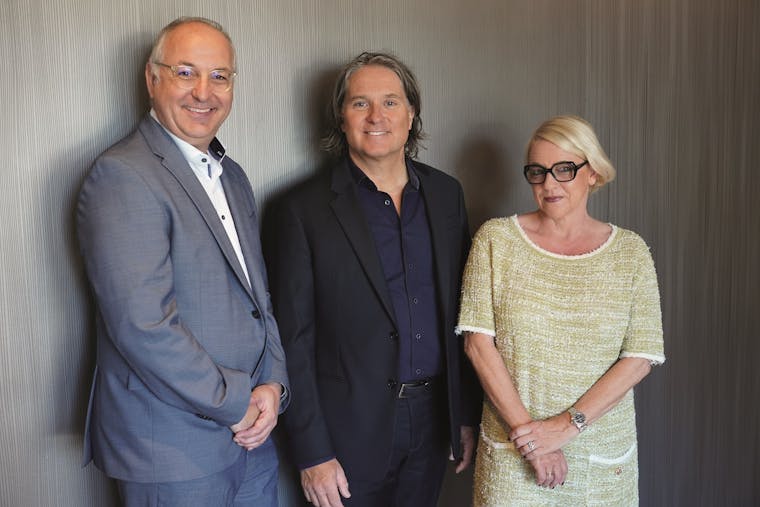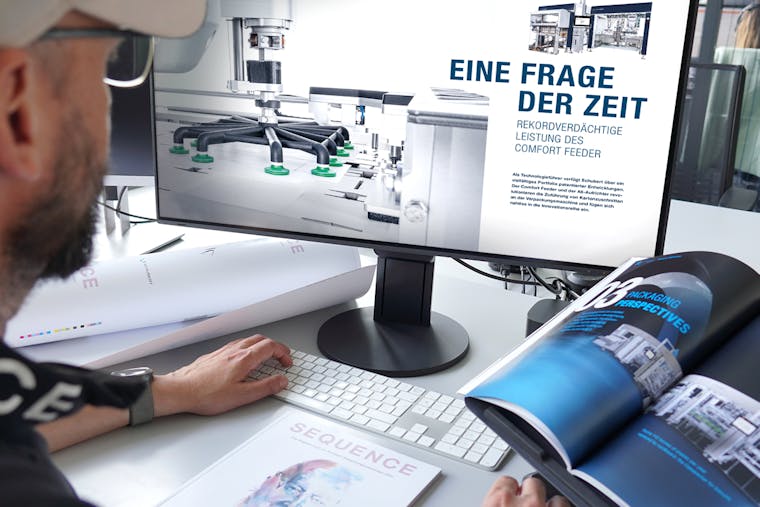Economic Summit in the Rems valley
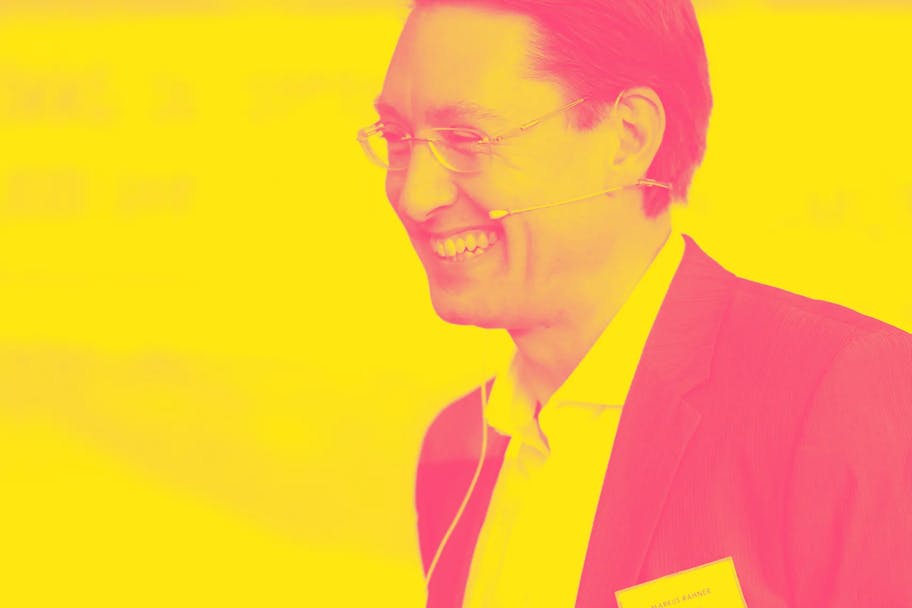
Under the motto “Global risks or huge opportunities on world markets? Success and sustainability for the Baden-Württemberg economy”, entrepreneurs and managers from the Stuttgart to Aalen region came together at the end of September for the first Economic Summit in the Rems valley. Invitations to the convention centre in Schwäbisch Gmünd were extended by Stuttgart-based marketing agency Ruess Group and the Ottenwälder und Ottenwälder design agency, as well as the Hotel am Remspark and the Gmünd business development agency.
Economic Summit in the Rems valley
- Economic Summit in the Rems valley
- 26 September 2019, Schwäbisch Gmünd Convention Centre
- Organiser: Ruess Group, Ottenwald and Ottenwald, Hotel am Remspark
- Coop partners: City of Schwäbisch Gmünd and the Akademie Deutscher Weltmarktführer
Trump, sustainability, design:
The first Economic Summit in the Rems valley focuses on central influences on entrepreneurs in Baden-Württemberg
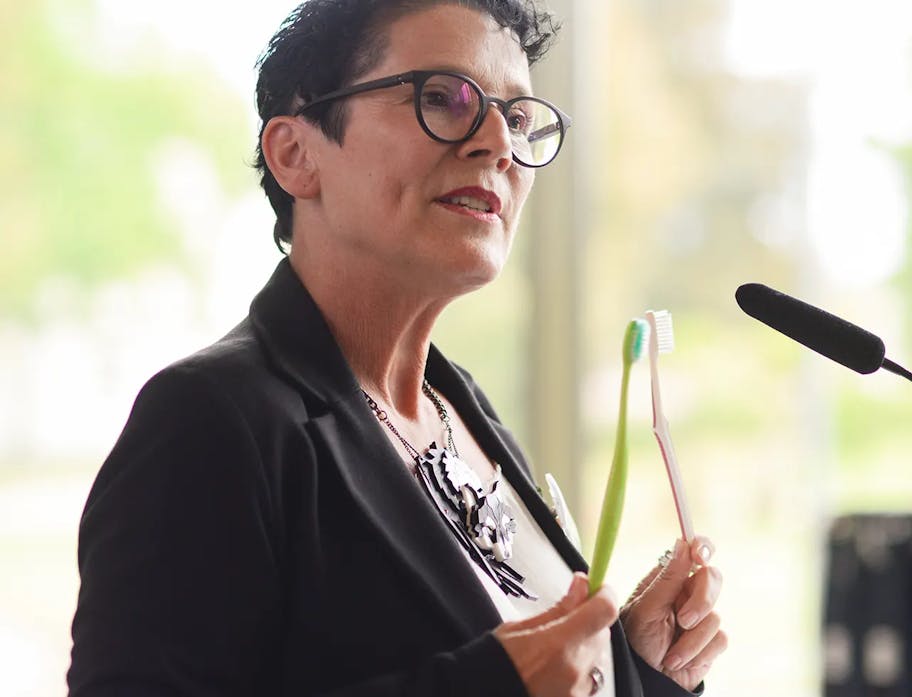
Influence of “Dealmaker” Trump
The Economic Summit also dealt with another core global issue: Dr. Christian Bluth of the Bertelsmann Stiftung discussed the economic course the US has taken with Donald Trump, which is difficult to assess from his Twitter tweets.
Trump likes to present himself as a “dealmaker”. But whether he is really looking for a trade deal with China is uncertain from an election campaign perspective.
Regarding a possible trade policy future for the USA after an era of Trump, economist Bluth noted that a possible Democratic president would probably follow a similar course to Trump: “Bernie Sanders would not argue a substantially different trade policy from Trump.” The first part of the entertaining afternoon was completed by Petra Kurz-Ottenwälder, owner of Ottenwälder und Ottenwälder and co-initiator of the event. She impressively explained how design creates value for companies and how to distinguish good from bad design.
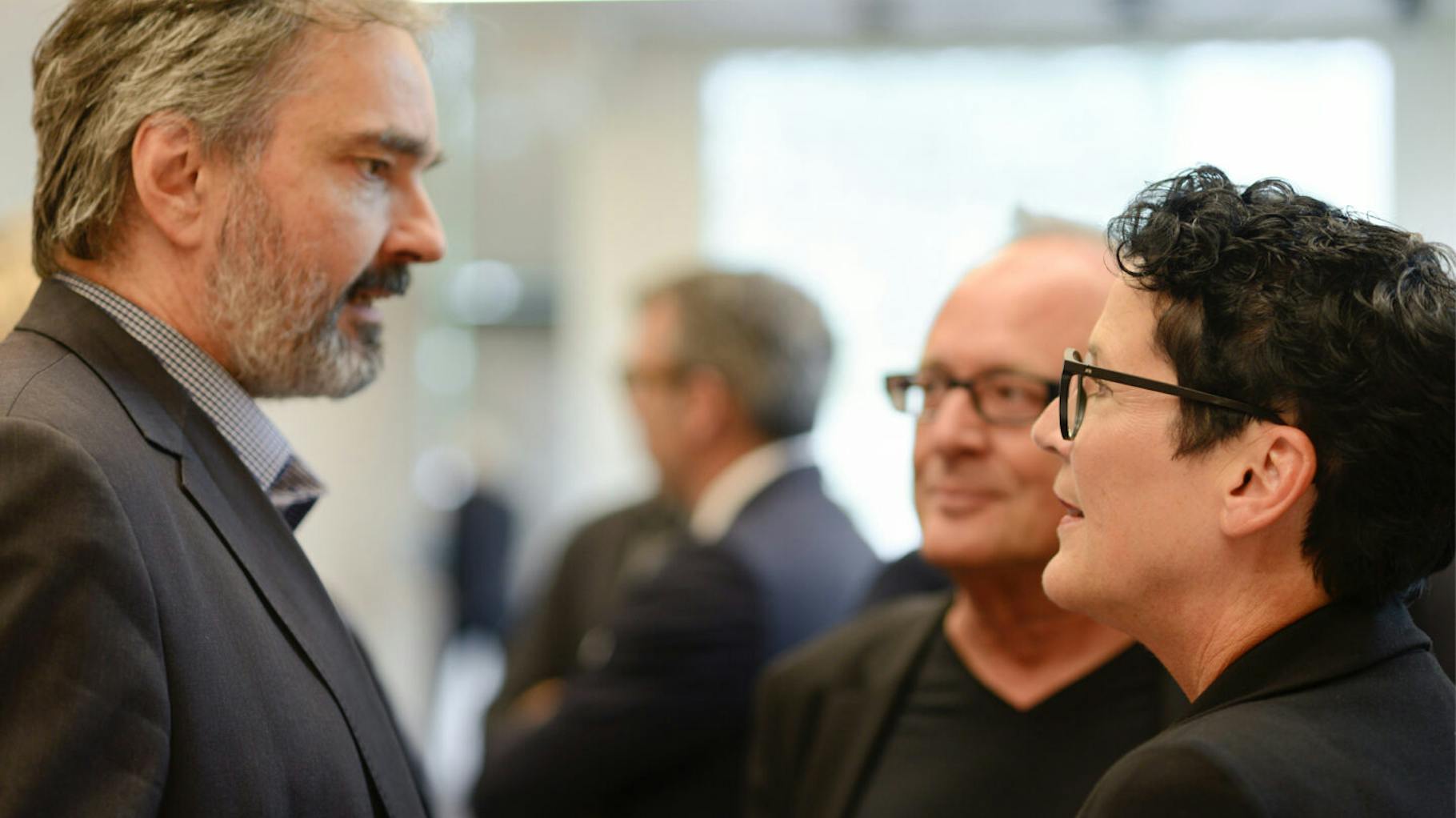
Dr. Albert Schmitt (left), Managing Director of The Deutsche Kammerphilharmonie Bremen, in conversation with Petra Kurz-Ottenwälder, owner of Ottenwälder und Ottenwälder and co-initiator of the event.
Internationalisation as growth driver at Weleda AG
Dr. Aldo Ammendola opened the second round of the conference: The member of the Weleda AG Executive Board, the world’s leading company in natural cosmetics and anthroposophical medicines, discussed the international expansion strategy and how this can be reconciled with a sustainable and anthroposophically inspired corporate philosophy. Both have been catalysts for Weleda’s growth in recent years.
The topic of sustainability was a recurring theme throughout the entire Economic Summit. Tina Teucher, consultant for sustainable management, presented the Insect Respect project, to which 25 euros of the ticket price were also donated. The aim of the concept is to convert company premises into habitats for insects in order to ensure their survival. Surprisingly, this commitment was initiated by Reckhaus, a manufacturer of insecticides. Speaker Peter Friess from the Fokus Zukunft consulting firm also highlighted the irreversible consequences of climate change in his lecture and called on those present to do more to protect the climate. The first Economic Summit in the Rems Valley was certified as a climate-neutral event by Fokus Zukunft.

Compelling small talk with guests: Steffen Ruess (right), Managing Partner of the Ruess Group, Stuttgart. | The in-depth discussion with all guests was continued at the nearby Hotel am Remspark until late in the evening.
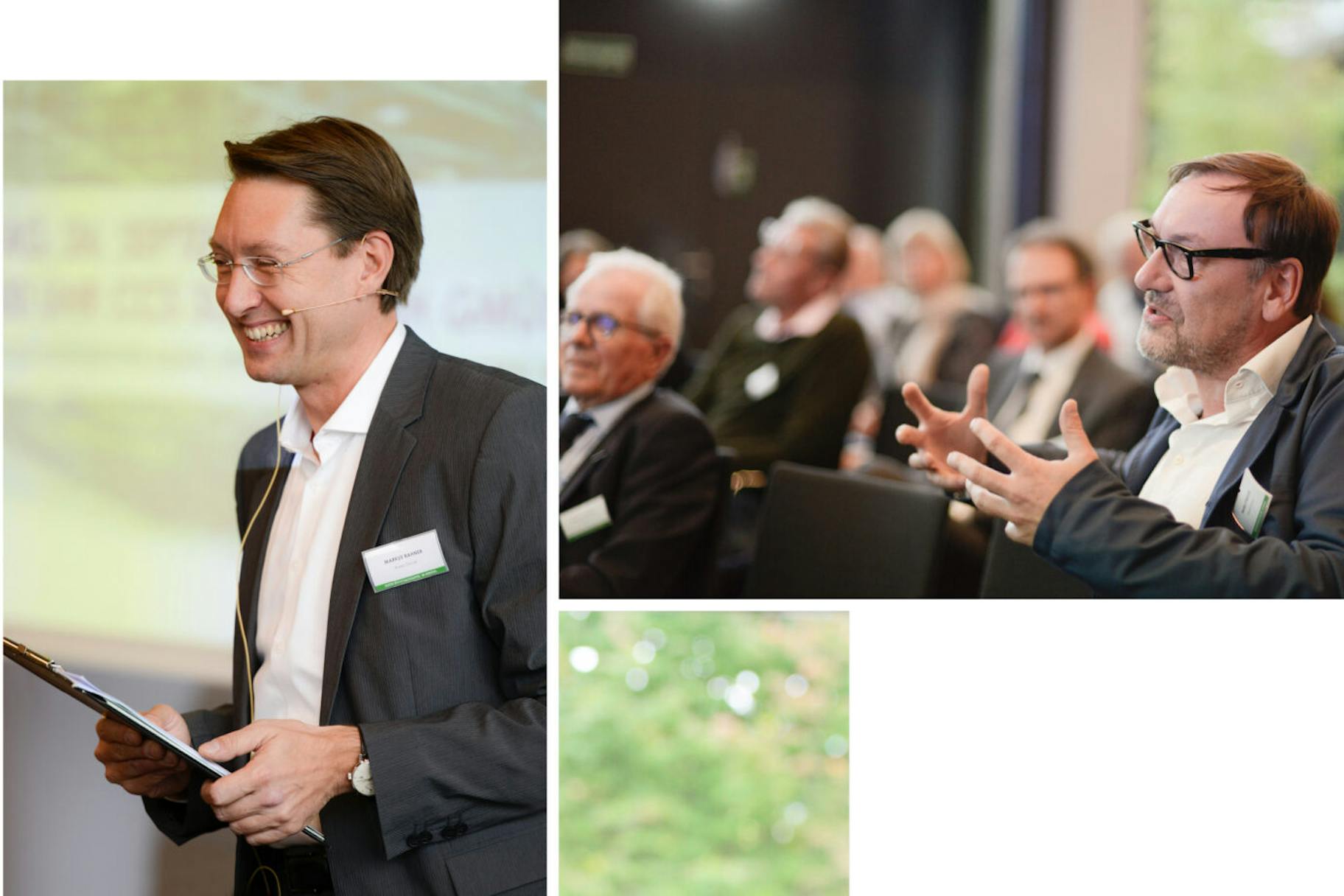

In the afternoon, the Round Table took a close look at the interface between sustainable management and entrepreneurship: Moderator Markus Rahner, Managing Partner of the Ruess Group, Stuttgart. | During the one-day event, there was repeatedly a lively exchange of ideas between speakers and the interested audience.
Racing, high potentials and sustainability
The afternoon was rounded off with a Round Table on the interface between sustainable management and entrepreneurship.
Moderated by Markus Rahner, Managing Partner of the Ruess Group, Norbert Haug, former head of motor sports at Mercedes Benz, Ralf Holighaus, Managing Director of the Schempp-Hirth glider manufacturer, and entrepreneur Dr. Edwin Tscheschlok discussed the topic. Topics such as eMobility, energy system transformation, but also digitalisation and the shortage of skilled workers were the subject of a lively discussion.
The in-depth discussion with all guests continued at the nearby Hotel am Remspark until late in the evening. During dinner on the 7th floor, with its far-reaching view over the roofs of Schwäbisch Gmünd, further topics of conversation abounded: Dr. Albert Schmitt, Managing Director of The Deutsche Kammerphilharmonie Bremen, told the story of the exceptional orchestra’s development from the approaching bankruptcy at the end of the 1990s to its present – also economically successful – musical world brand.
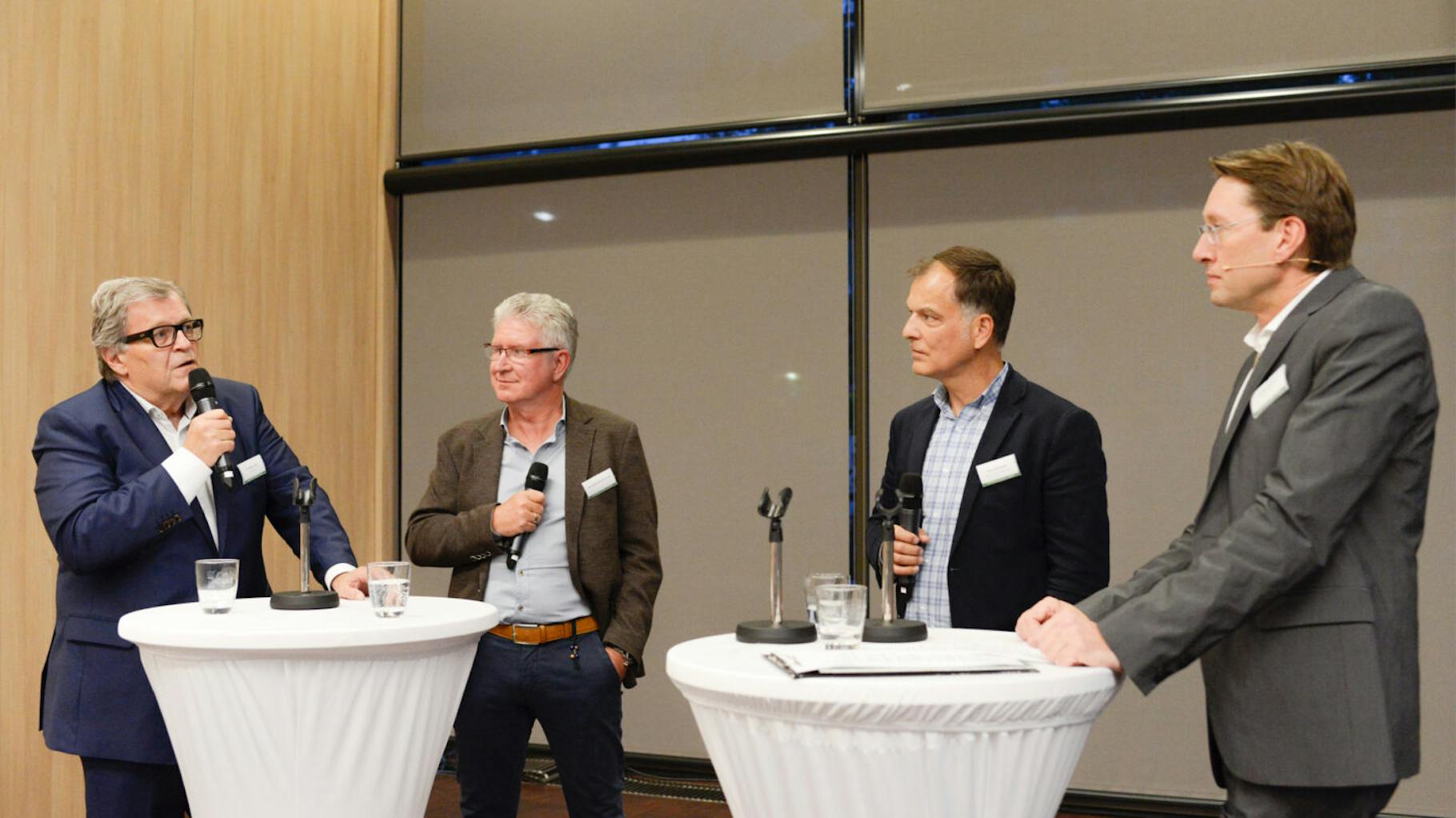
Interesting round table discussion on topics such as eMobility, energy system transformation, digitalisation and shortage of skilled workers (from left to right): Norbert Haug (former head of motor sports at Mercedes Benz), entrepreneur Dr. Edwin Tscheschlok, Ralf Holighaus (Managing Director of glider manufacturer Schempp-Hirth) and moderator Markus Rahner.
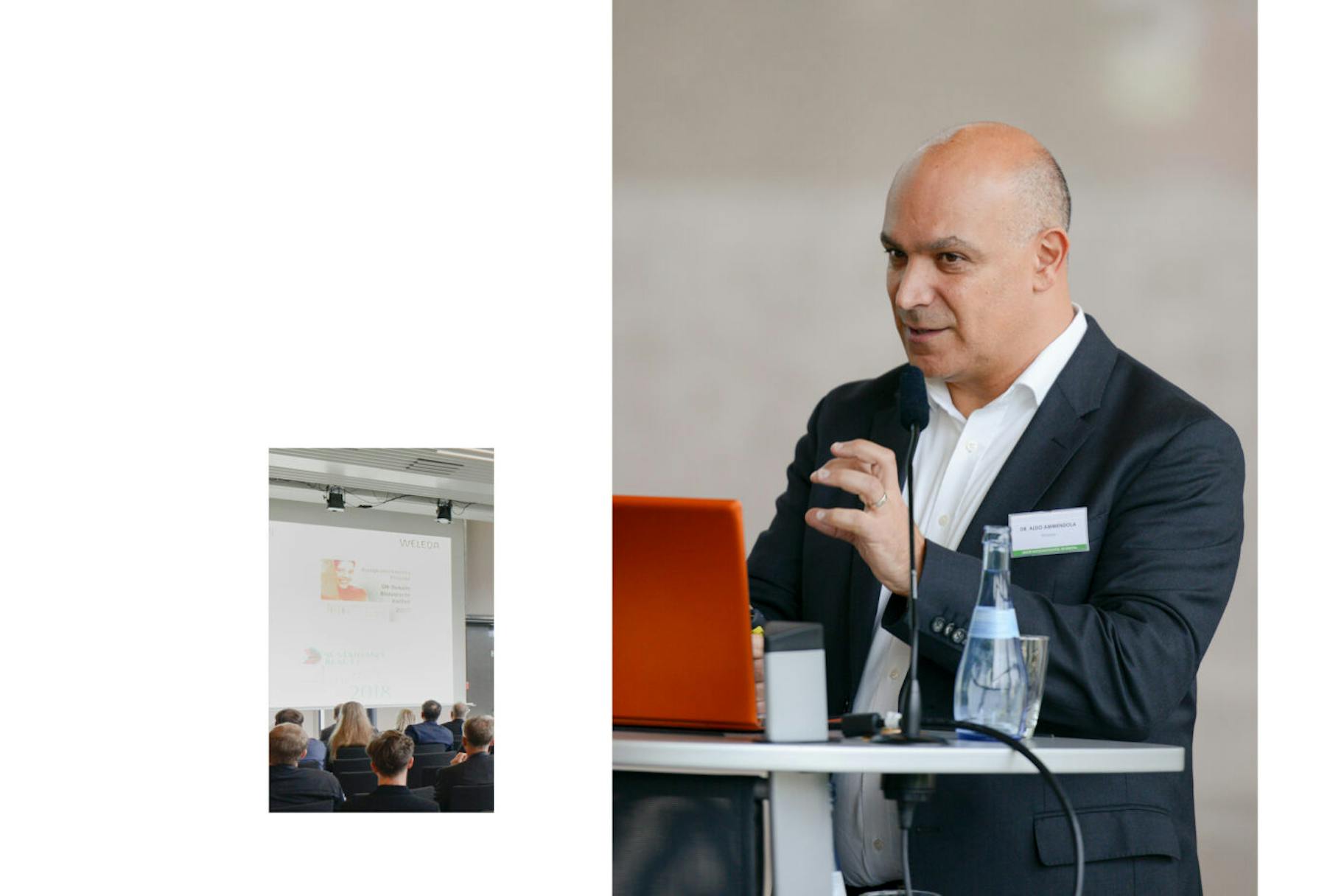

In his presentation, Dr. Aldo Ammendola (Member of the Executive Board of Weleda AG) discussed the international expansion strategy of the world’s leading natural cosmetics company and how this can be reconciled with a sustainable and anthroposophically inspired corporate philosophy.


